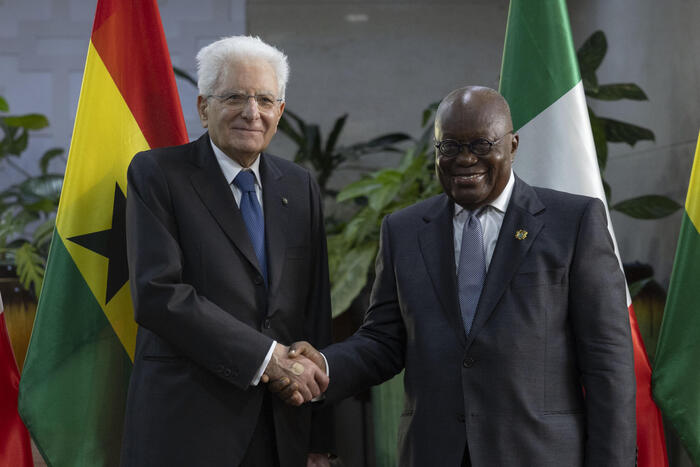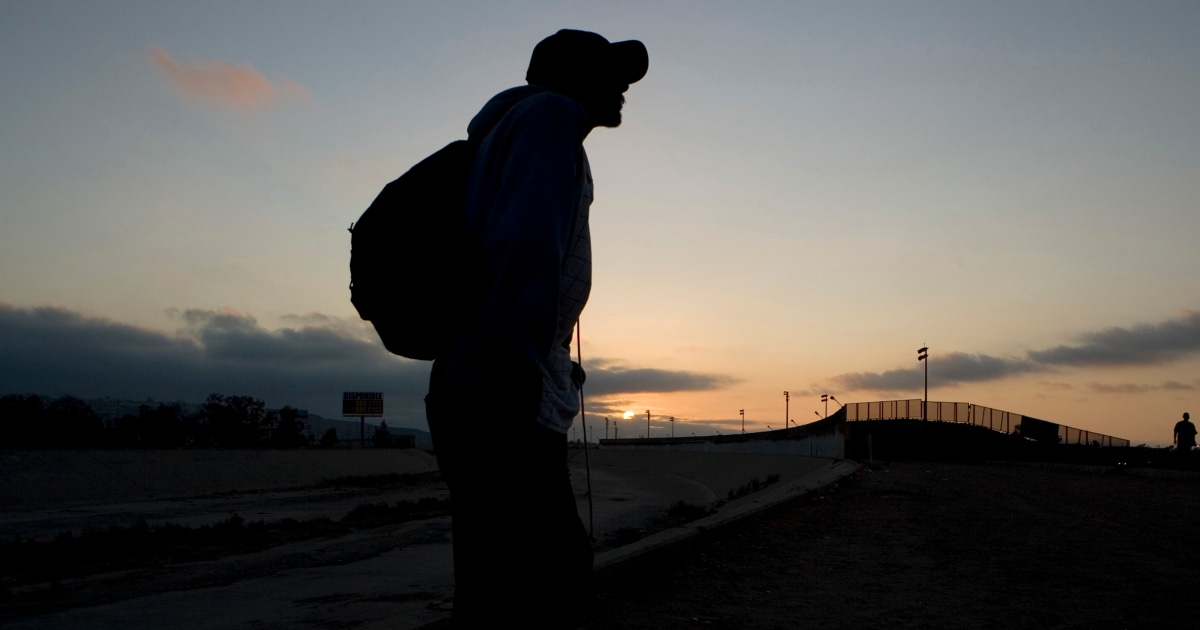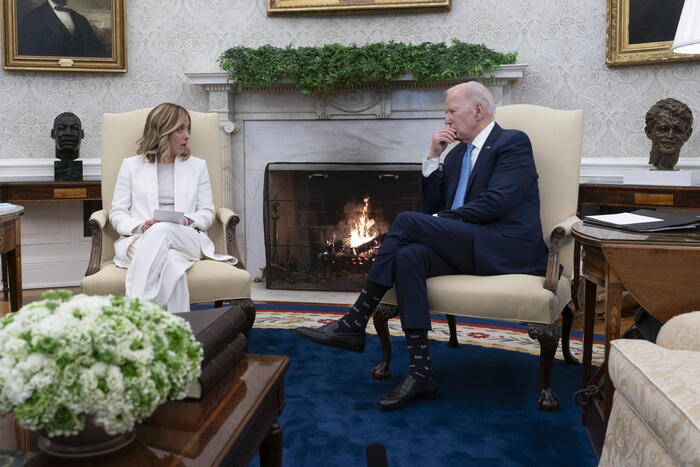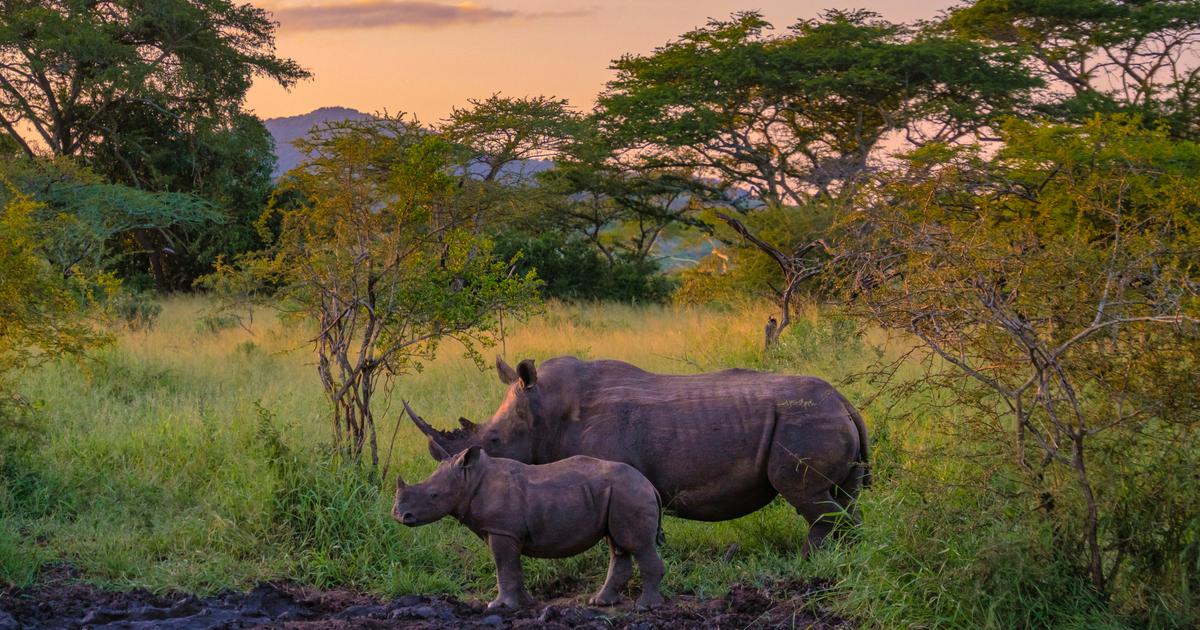Migrants of various nationalities wait to be rescued by the NGO Open Arms 80 miles off the Libyan coast on February 13, 2021.Bruno Thevenin / AP
Last Thursday, February 18, a robust man with dark skin and a shaved head calmly walked out of the door of the federal court in Addis Ababa.
Those who crossed paths with him at that time could not imagine that he was the Eritrean Kidane Zekarias Habtemariam, one of the most cruel human traffickers in Africa who was on trial for kidnapping, torturing and enslaving thousands of migrants in Libya.
Moments before he had asked to go to the bathroom, where he changed his prison uniform for street clothes that someone had hidden for him.
The two officers who were guarding him are being investigated in case they received money for letting him escape;
his victims and accusers now fear that Kidane will seek revenge.
"There are strong suspicions given the prisoner's record of bribery," says Lule Estifanos, an Ethiopian court journalist and law graduate who has followed this trial from the beginning, "there is an investigation underway."
Kidane, active in Libya between 2014 and 2019, was arrested in 2020 in the Ethiopian capital and although his process has been dotted with interruptions due to the covid-19 pandemic and attempts by the accused to corrupt witnesses, the truth is that he I was expecting a conviction.
"The victims trusted that justice would be done," says Estifanos.
For now, that hope has faded.
Pierre Bohaibi, an Ivorian asylum seeker residing in France, spent a year and four months trapped in Libya on his way to Europe.
It was in Bani Walid, nicknamed
Ghost City
by the migrants themselves because of the sheer number of missing persons and their terrible detention conditions, that he first heard about Kidane.
“They locked me up in a
prison run
by a Libyan named Abdulkarim.
We were all black, from various countries, but many Ethiopians and Eritreans spoke of Kidane, who had brought them there.
They both worked together, ”says Bohaibi.
That prison was actually a gigantic hangar controlled by human trafficking networks that had cameras and security guards to prevent their escape.
During the trial, one of the victims claimed that Kidane had up to 400 mercenary soldiers working for him.
“That was hell on earth.
We ate a piece of bread a day and there was no drinking water.
Every morning they beat us.
They made us call our family to ask for money as a ransom and if you refused they gave you electricity.
Many died without any medical assistance.
The girls were not beaten, but they were abused, they had no other option, it was obligatory.
If they wanted to get to Europe, the violation was their visa.
We blacks are nothing in Libya, less than nothing.
One day they made us throw the corpse of a comrade into the desert who did not resist the torture and we decided to flee.
It was live or die.
We stole a guard's gun and forced the doors.
This is how we escape ”, he adds.
Eritrean activist Meron Estefanos has been tracking Kidane for years and denouncing human rights violations.
“These characters started out as
fixers
for the Libyans and ended up becoming traffickers.
They have no respect for life and extorted money from migrants.
A young man from West Africa paid $ 500 to $ 600 to get to Europe;
Kidane charged them 2,500, kidnapped them and demanded more than 5,000 in ransom.
Then he would put 500 people on a boat when the normal number was a hundred and also if there was a shipwreck he refused to give information to the families ”.
In fact, he is accused of being one of those responsible for having crammed with people a ship that sank on April 19, 2015, causing one of the worst tragedies in the Mediterranean with the death of more than 900 migrants.
Estefanos is very critical of European policies regarding these traffickers.
“There are no extradition agreements, the European police do not share information.
They invest millions in reinforcing the transit countries instead of fighting the real problem ”, he assures.
In addition to Kidane, the federal court in Addis Ababa is holding the trial of another brutal trafficker named Tewelde Goitom, nicknamed
Welid
, who was arrested in March 2020 and accused of being a systematic rapist.
Many fear that he may also escape if special security measures are not taken.
The Ethiopian journalist Kaleab Girma, who follows the
Welid
process
, assures that the five victims who have given testimony, all men, related with hair and signs how they were beaten and extorted until their families sent money to the trafficker.
"Some showed their fractured fingers and agreed that he raped the girls, he even recorded it on video and then blackmailed them, but for these women it is very difficult to go and testify, do you understand?", Girma assures by telephone from the Ethiopian capital.
Fear, trauma, and shame add to the fact that most of them are in Europe and other countries.
Meron Estefanos is convinced that Kidane used her influence and especially her money to escape and that she could now find herself in Kenya.
"It is not clear where all the money has gone, says Lule Estifanos," Interpol is investigating.
As the journalist Sally Hayden, who has been investigating these criminal networks in Libya for years, wrote in Vice, the ransoms were deposited in many countries, from the United Arab Emirates to Israel through the United Kingdom or Sudan.
Prosecutors have also revealed movements of funds to Canada and Sweden, indicating the international extent of the business.
The migration route to Europe through Libya is one of the most dangerous in Africa and was activated after the fall of Muammar Gaddafi in 2011 and the enormous instability that the disappearance of his regime generated.
Much of the country was under the control of warlords and militias, which favored the emergence of human trafficking networks that subjected migrants in transit to Europe to all kinds of human rights violations, extortion, torture and even slavery, as denounced by numerous international organizations.

/cloudfront-eu-central-1.images.arcpublishing.com/prisa/NP2PVU4HJDXULGZMBGFJ3YAHME.jpg)







